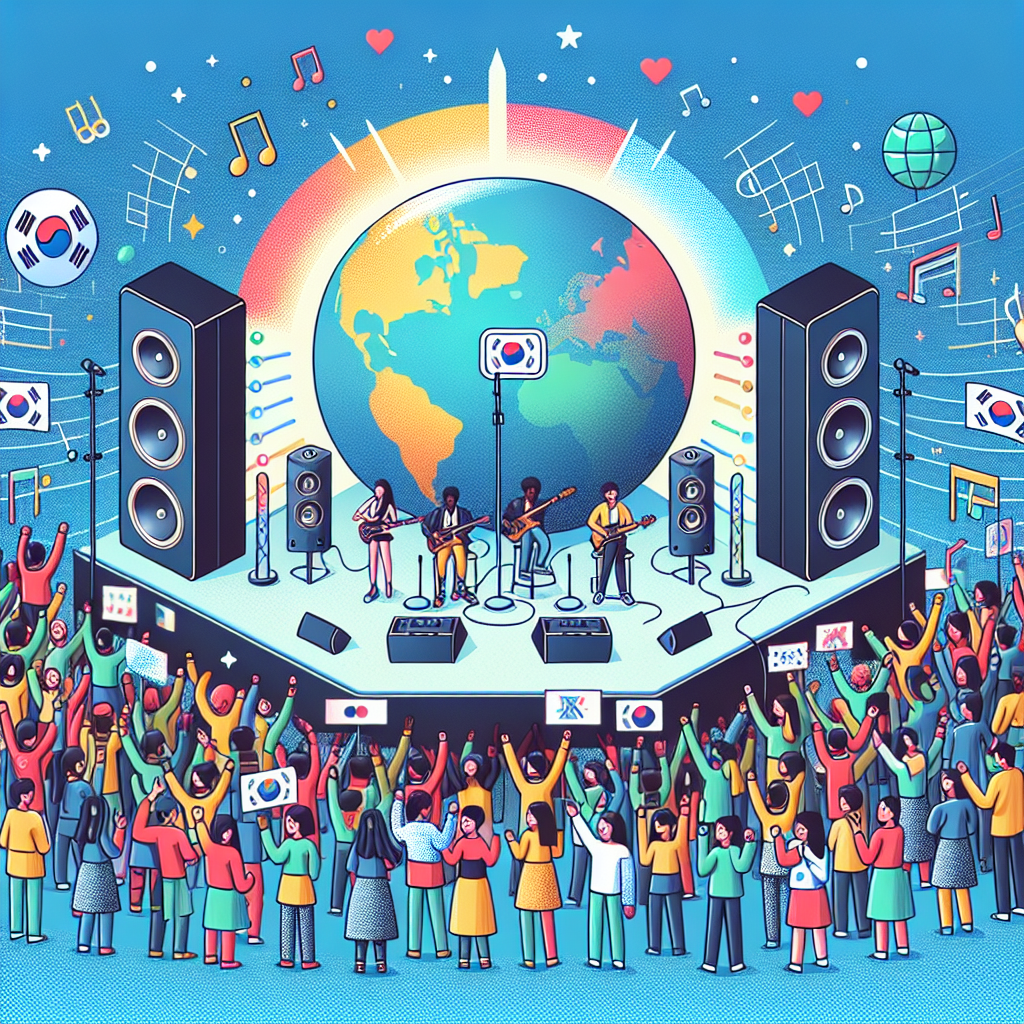Fenomena globalisasi musik K-Pop: Pengaruh besar musik pop Korea yang menyebar ke seluruh dunia, menciptakan penggemar dan budaya pop baru.
Fenomena Globalisasi Musik K-Pop
-
Table of Contents
The Rise of K-Pop in Indonesia

Introduction
Over the past decade, the global music industry has witnessed a remarkable phenomenon known as the globalization of K-Pop. Originating from South Korea, K-Pop has gained immense popularity worldwide, including in Indonesia. This article explores the reasons behind the rise of K-Pop in Indonesia, its impact on the local music industry, and the influence it has on Indonesian youth.
The Appeal of K-Pop
K-Pop, short for Korean Pop, is a genre of music that combines catchy melodies, synchronized dance routines, and visually appealing music videos. It offers a unique blend of Western pop, hip-hop, and traditional Korean music elements, making it distinct from other genres. The appeal of K-Pop lies not only in its music but also in the overall package that includes fashion, beauty, and lifestyle.
One of the main reasons for K-Pop’s popularity in Indonesia is its relatability. K-Pop artists often sing in Korean, yet their music transcends language barriers. The emotions conveyed through their songs and the universal themes they address resonate with Indonesian fans. Additionally, K-Pop idols are known for their close interactions with fans through social media platforms, creating a sense of intimacy and connection.
The Role of Social Media
Social media platforms have played a crucial role in the global spread of K-Pop, and Indonesia is no exception. Websites like YouTube, Twitter, and Instagram have provided a platform for Indonesian fans to discover and engage with K-Pop content. The ease of sharing and consuming music online has allowed K-Pop to reach a wider audience, transcending geographical boundaries.
Furthermore, fan communities on social media have become a driving force behind the popularity of K-Pop in Indonesia. These communities, often referred to as “fandoms,” create a sense of belonging and unity among fans. They organize fan events, share updates about their favorite artists, and even contribute to chart rankings by streaming songs and purchasing albums. The strong sense of community within these fandoms has contributed to the sustained success of K-Pop in Indonesia.
Indonesian Artists Collaborating with K-Pop
Another factor that has contributed to the rise of K-Pop in Indonesia is the increasing number of collaborations between Indonesian artists and K-Pop idols. These collaborations not only introduce K-Pop to a wider audience but also create a cultural exchange between the two countries. Indonesian artists gain exposure to the global music market, while K-Pop idols gain recognition in Indonesia.
One notable collaboration was between Indonesian singer Agnez Mo and K-Pop group 2NE1’s member CL. Their song “Coke Bottle” became a hit in both Indonesia and South Korea, showcasing the potential for cross-cultural collaborations. Such collaborations not only benefit the artists involved but also contribute to the diversification of the Indonesian music scene.
The Impact on the Indonesian Music Industry
The rise of K-Pop in Indonesia has had a significant impact on the local music industry. Indonesian artists and record labels have recognized the popularity of K-Pop and have started incorporating elements of the genre into their music. This fusion of K-Pop with Indonesian music has created a new sub-genre known as “Indo-K-Pop,” which has gained a dedicated fan base.
Furthermore, the success of K-Pop has led to an increase in the number of music festivals and concerts featuring K-Pop artists in Indonesia. These events attract thousands of fans, both local and international, contributing to the growth of the live music industry in the country. The economic impact of K-Pop concerts and merchandise sales cannot be overlooked, as it generates revenue for the local music industry.
The Influence on Indonesian Youth
K-Pop’s influence extends beyond the music industry and has permeated various aspects of Indonesian youth culture. The fashion and beauty trends popularized by K-Pop idols have inspired Indonesian youth to adopt similar styles. Korean skincare routines and makeup techniques have gained popularity, leading to an increase in the demand for Korean beauty products in Indonesia.
Moreover, K-Pop’s emphasis on discipline, hard work, and perseverance has resonated with Indonesian youth. Many fans look up to K-Pop idols as role models and draw inspiration from their dedication to their craft. This influence has led to an increase in the number of Indonesian youth pursuing careers in the entertainment industry, including music, dance, and acting.
Summary
The globalization of K-Pop has had a profound impact on the Indonesian music industry and youth culture. Its relatability, facilitated by social media, has allowed K-Pop to transcend language barriers and connect with Indonesian fans. Collaborations between Indonesian artists and K-Pop idols have further fueled its popularity, leading to the emergence of Indo-K-Pop as a sub-genre. The rise of K-Pop has also contributed to the growth of the live music industry in Indonesia and influenced fashion, beauty, and career choices among Indonesian youth. As K-Pop continues to evolve and captivate audiences worldwide, its presence in Indonesia is likely to endure.
Komentar Terbaru







